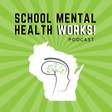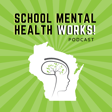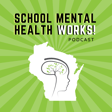
Episode 10: Beyond Words - Understanding Diversity, Equity and Inclusion as Keys to Relationship and Belonging
Comprehensive school-based mental health initiatives seek to advance mental well-being throughout the school community. At the core of this work are relationships and building a sense of belonging for all students. In this episode, Allyson Forseth, Behavioral Health Initiatives Manager with the WI Association of Family and Children’s Agencies is joined by Dr. Armando Hernández, a Licensed Psychologist and Equity-Centered Leader with 20 years of experience specializing in culturally responsive practice, behavioral health consultation, and systems change. Their conversation explores concrete initiatives to grow diversity (mindset), equity (outcomes), and inclusion (relationship) within our school communities, as well as how these strategies serve as a foundation for student success and community connectedness. Acknowledging that this is a challenging and sometimes divisive topic, Dr. Hernández brings a perspective grounded in his cross-system work and invites us to center on curiosity, respect, and relationship while boldly exploring resistance within ourselves and our systems.
Show Notes
Coalition for Expanding School-Based Mental Health in Wisconsin
Wisconsin Department of Public Instruction - Comprehensive School Mental Health
Wisconsin School Mental Health Framework
National Center for School Mental Health DEIA Resources
Othering & Belonging Institute
National Equity Project - Liberatory Design
Toolkit: Design for Belonging by Susie Wise


